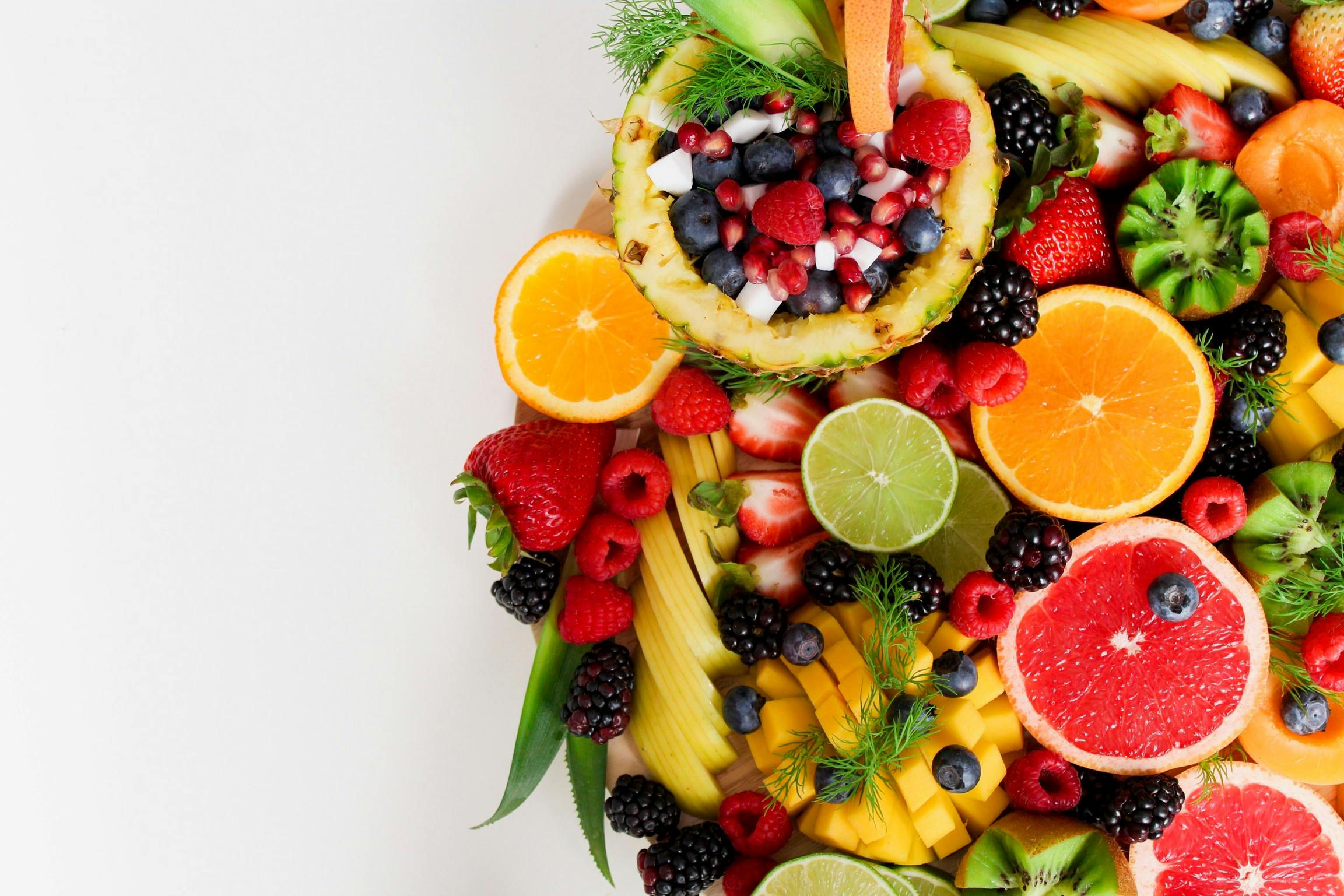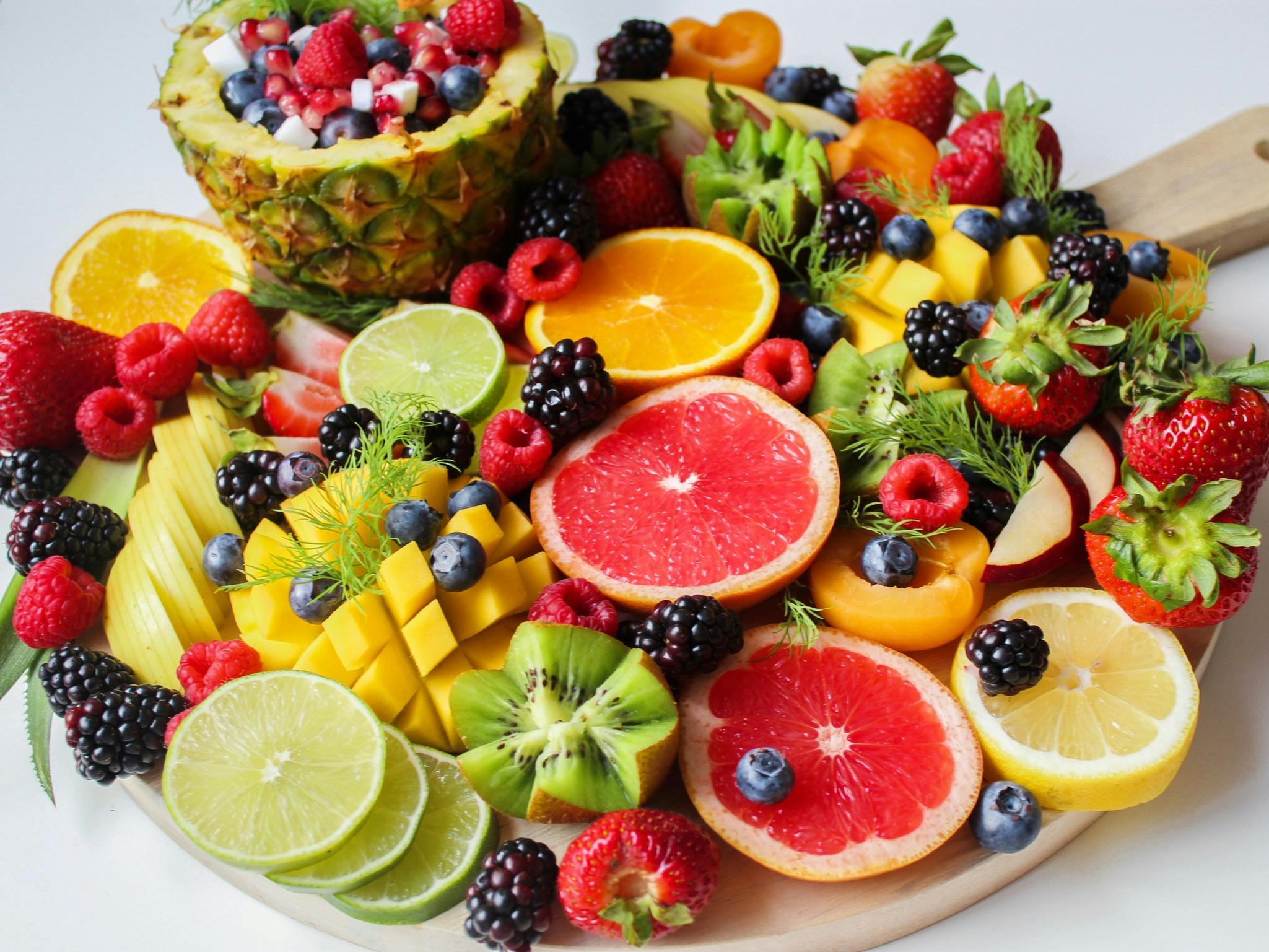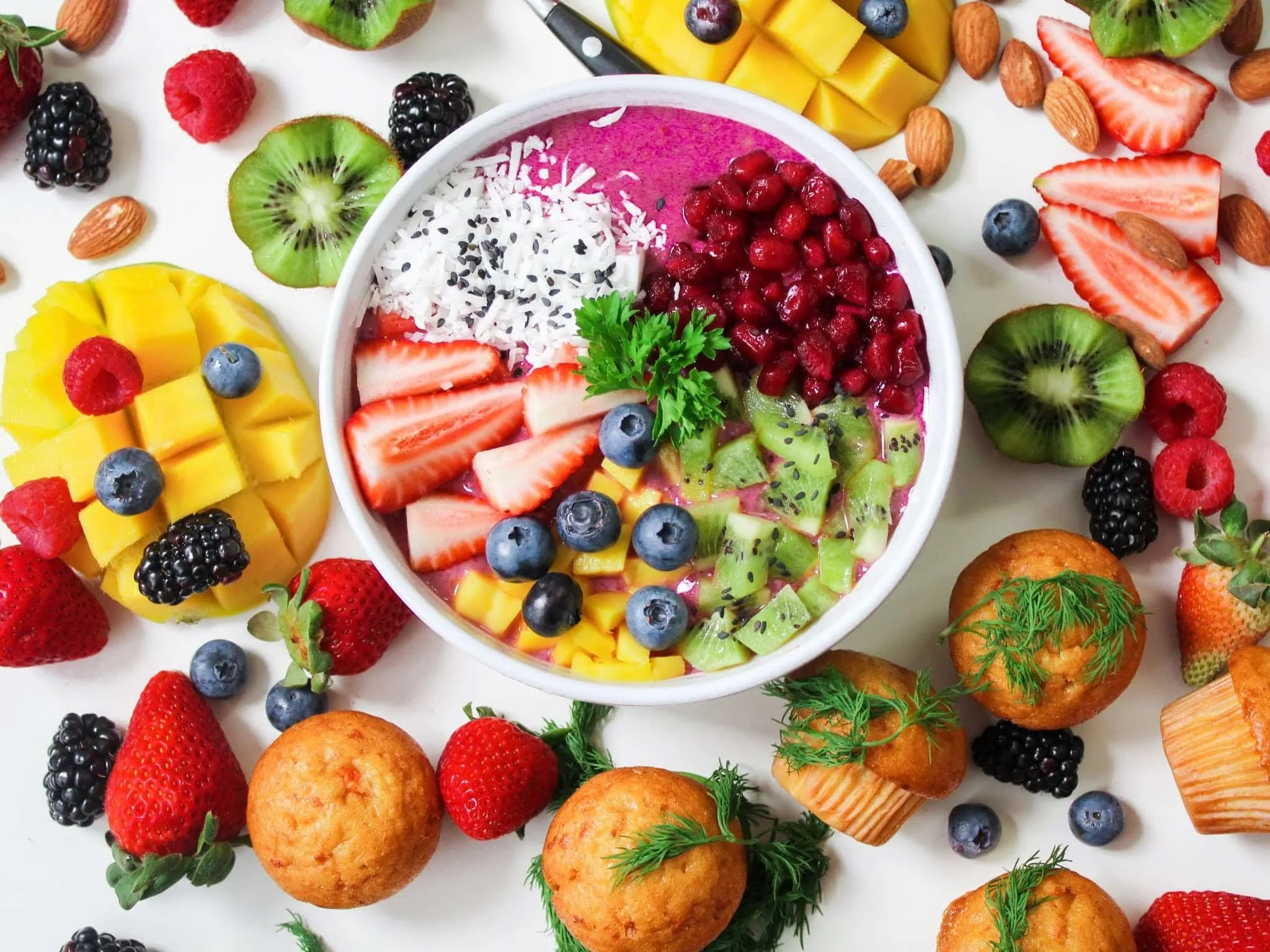Pineapple is a delicious tropical fruit enjoyed by many people around the world. In recent years, there has been some concern about whether pineapple contains lectins, a type of protein found in some foods that are thought to cause digestive distress in some people. In this article, we will look at the evidence and discuss whether pineapples contain lectins and what effects they may have on your health.Lectins are proteins that are found in many types of food, including fruits and vegetables. They have a variety of functions, such as helping the body absorb nutrients, protecting plants from disease, and acting as a defense against predators. Pineapple does contain lectins, but they are far less concentrated than in other foods such as grains and legumes. The amount of lectins in pineapple is considered safe and unlikely to cause any adverse health effects.
Potential Health Benefits of Eating Pineapple
Pineapple is a nutritious tropical fruit that has been consumed for many centuries. It is rich in essential vitamins and minerals, and can provide numerous health benefits. Research suggests that eating pineapple can help improve digestion, reduce inflammation, boost immunity, and even aid in weight loss. Additionally, pineapple contains high amounts of antioxidants which can help protect against various forms of cancer and other diseases.
Pineapple is an excellent source of dietary fiber, which helps to keep the digestive system functioning properly. Fiber helps to keep food moving through the digestive tract and can help prevent constipation. Eating pineapple also helps to promote healthy bacteria growth in the gut, which can improve digestion and reduce symptoms of gastrointestinal issues such as bloating, indigestion, and gas.
Pineapple contains bromelain, an enzyme that has anti-inflammatory properties. This enzyme can help reduce inflammation throughout the body by helping regulate various hormones that are linked to inflammation. Bromelain may also be beneficial for those with joint pain or arthritis due to its ability to reduce inflammation in affected areas.
The high levels of vitamin C found in pineapple are key for boosting immunity and protecting against infections such as colds or flu. Vitamin C also helps the body absorb iron more effectively which can help increase energy levels and reduce fatigue. Additionally, vitamin C plays a role in collagen production which helps keep skin looking healthy and youthful.
Finally, pineapples contain several components that may be beneficial for weight loss including fiber and water content which both aid in digestion and help you feel fuller longer after eating a meal rich in this tropical fruit. The natural sweetness of pineapple also makes it a great substitute for unhealthy sweets or snacks that are often loaded with added sugar or fat.
In conclusion, pineapple is a nutritious fruit packed with essential vitamins, minerals, antioxidants, enzymes, and dietary fiber that offer numerous health benefits including improved digestion, reduced inflammation, boosted immunity, increased energy levels and potentially aiding in weight loss.
Potential Health Risks of Eating Pineapple
Pineapple is a tropical fruit that is high in vitamins, minerals, and fiber. While it is generally considered to be a healthy food choice, there are some potential health risks associated with eating pineapple. These include allergies, digestive issues, and interactions with certain medications.
Allergies to pineapple are not common, but they can occur. Symptoms of a pineapple allergy may include itching, swelling, hives, difficulty breathing, or anaphylaxis. If you experience any of these signs after eating pineapple, you should seek medical attention immediately.
Digestive issues can also occur with the consumption of pineapple. The high fiber content in pineapple may lead to excessive gas or bloating in some people. It can also cause diarrhea if eaten in large quantities. If you experience any of these symptoms after eating pineapple, it is best to reduce your intake or avoid the fruit altogether.
Certain medications can interact with compounds found in pineapples and cause adverse reactions. These medications include blood thinners such as warfarin and aspirin as well as ACE inhibitors like captopril and lisinopril. If you take any of these medications, it is best to talk to your doctor before consuming large amounts of pineapple or its juice.
Overall, pineapples are generally considered safe to eat when consumed in moderation. However, people who have allergies or sensitivity to the fruit should avoid it altogether and those taking certain medications should consult their doctor before consuming large amounts of pineapple or its juice.
Is There Any Evidence to Suggest That Pineapple Contains Lectins?
Lectins are a type of protein that can bind to carbohydrates and are found in many foods, including pineapple. While there is evidence that suggests pineapple contains lectins, the exact amount is still unclear.
Studies have shown that lectins are present in the leaves, stem, and fruit of pineapple plants. Additionally, research has indicated that these lectins may be responsible for some of the health benefits associated with eating pineapple. For example, studies suggest that lectins may help protect against certain types of cancer and reduce inflammation.
However, it is important to note that these studies are mostly limited to laboratory experiments and animal studies. While these results are promising, more research needs to be done to determine if there are any significant health benefits associated with consuming pineapple containing lectins.
Furthermore, the exact amount of lectins present in pineapple is still not known. Although some studies have reported high levels of lectin in the plant tissue, other studies have not been able to confirm this finding. This makes it difficult to determine whether or not consuming pineapple with a high amount of lectin would provide any health benefits.
Overall, while there is evidence that suggests pineapple contains lectins, the exact amount is still unclear. Furthermore, more research needs to be done in order to determine if consuming foods containing high amounts of lectin can provide any health benefits for humans.
Minimizing the Number of Lectins in Our Diet
One way to minimize the number of lectins in our diet is to choose foods that are low in lectins. These include fruits and vegetables, beans and legumes, nuts and seeds, whole grains, animal proteins, dairy products, and oils. Eating a variety of these foods can help to reduce the amount of lectins we consume.
Another way to minimize our intake of lectins is to prepare food properly. This includes soaking beans and legumes overnight before cooking them, as this helps to reduce their lectin content. Additionally, sprouting grains can also help to reduce their lectin content. Finally, boiling certain vegetables has been shown to reduce their lectin content as well.
In addition to these methods, avoiding certain foods can also help us minimize our intake of lectins. These include nightshade vegetables such as tomatoes and potatoes; grains such as wheat and rye; legumes such as peanuts; and dairy products such as milk and cheese. It is also important to be aware of processed foods that may contain added lectins from ingredients such as corn or wheat starch or soybean oil.
By following these tips, we can help minimize the number of lectins in our diets while still enjoying a variety of nutritious foods. Eating a balanced diet that includes whole grains, beans and legumes, nuts and seeds, fruits and vegetables, animal proteins, dairy products, and oils can provide us with many essential vitamins and minerals while reducing our exposure to potentially harmful substances such as lectins.

Reducing Risk of Adverse Reactions to Lectin-Containing Foods
One of the most effective ways to reduce the risk of adverse reactions to lectin-containing foods is to choose wisely when shopping for and consuming them. For instance, it is important to be aware of which foods are high in lectins and which are not. Some foods, such as legumes, can be cooked to reduce their lectin content. Additionally, soaking and sprouting legumes may also help to reduce their lectin content.
In addition to choosing wisely when shopping for and consuming foods that contain lectins, it is also important to eat them in moderation. Eating too much of any food that contains lectins can increase the risk of adverse reactions. Consuming smaller amounts can help minimize this risk.
Another way to reduce the risk of adverse reactions from lectin-containing foods is to replace them with other healthy options. Plant-based proteins such as quinoa, amaranth, buckwheat, and chia seeds are all low in lectins and are excellent alternatives to foods like beans and lentils. Additionally, non-starchy vegetables such as leafy greens, cruciferous vegetables, cucumbers, and zucchini are all low in lectins and can be eaten without fear of adverse reactions.
Finally, it is important to always cook food thoroughly before eating it. Cooking helps break down some of the proteins that contain lectins and reduces their potential for causing an adverse reaction in some individuals. Additionally, it is important to wash all produce thoroughly before eating it as this may help remove some of the potentially harmful compounds found on the surface.
Overall, reducing the risk of adverse reactions from lectin-containing foods requires a bit of extra care when shopping for and consuming them but can be done with proper planning and preparation. By making informed decisions about what types of food we consume and how we prepare them before eating them we can reduce our risk significantly.
Avoiding Foods That Contain Lectins
Yes, it is possible to avoid eating foods that contain lectins. Lectins are proteins found in many plant-based foods, such as grains, legumes, and nightshades. These proteins can cause digestive issues in some people and can be difficult for the body to break down. For this reason, some people choose to avoid eating foods that contain lectins.
One way to avoid consuming lectins is to eliminate grains and legumes from your diet. This includes wheat, oats, barley, rice, corn, quinoa, soybeans, and kidney beans. Additionally, nightshades such as potatoes and tomatoes should also be avoided if you want to reduce your lectin intake.
Another option is to cook or sprout your grains and legumes before consuming them. This can reduce the amount of lectin present in these foods and make them easier for the body to digest. If you do choose to eat grains and legumes despite their lectin content, it’s important to soak them overnight before cooking them. This helps increase their nutritional value while reducing the amount of lectin they contain.
Lastly, there are some plant-based foods that are naturally low in lectins and can be added into your diet instead of the ones mentioned above. These include apples, bananas, berries, carrots, cucumbers, squash, sweet potatoes, zucchini and mushrooms. Additionally nuts such as almonds and walnuts are also low in lectins so they can be included as a part of a balanced diet too.
By taking these steps you can reduce your exposure to dietary lectins without having to completely eliminate plant-based foods from your diet. Eating a balanced diet with plenty of fruits and vegetables is important for overall health so it’s beneficial to find ways of reducing dietary lectin intake without sacrificing nutrient-rich foods from your meal plan.
Are There Any Alternatives to Eating Foods That Contain Lectins?
Eating foods that are low in lectins is a great way to reduce the risk of health issues caused by lectin consumption. However, this can be difficult for some people who are used to eating certain types of food or have dietary restrictions. Fortunately, there are several alternatives to eating foods that contain lectins.
One option is to look for food products that are labeled as “low lectin” or “no lectin”. These products are made with ingredients that have been processed in such a way as to reduce or eliminate the presence of lectins. While these foods may not be as nutrient-dense as their higher-lectin counterparts, they can still provide essential vitamins and minerals without the risks associated with consuming large amounts of lectins.
Another alternative is to prepare foods in such a way as to reduce the amount of lectins present. For example, some vegetables can be cooked in water for a long period of time, which helps to break down the structure of the plant cells and release any bound-up lectins. Additionally, soaking certain grains overnight before cooking them can also help reduce the amount of lectins present in them.
Finally, some people opt for a plant-based diet that avoids all animal products and focuses on consuming only fruits, vegetables, nuts, and seeds. This type of diet eliminates most sources of dietary lectins and is generally considered healthier than diets high in animal fats and proteins.
In summary, there are several alternatives to eating foods that contain large amounts of lectins. These include looking for low-lectin or no-lectin food products; preparing foods in such a way as to reduce their lectin content; and opting for a plant-based diet that eliminates most sources of dietary lectins.

Conclusion
Pineapple indeed contains lectins, however, there is no scientific evidence to suggest that these lectins are particularly harmful. While a diet rich in lectin-containing foods could cause digestive discomfort for some people, especially those with pre-existing gut issues, it is unlikely that pineapple alone will cause any problems.
On the contrary, pineapple has many health benefits including helping to reduce inflammation, aiding digestion and supporting the immune system. As long as you don’t have a sensitivity or allergy to pineapple and eat it in moderation as part of a balanced diet, you should be able to enjoy its sweet taste without any adverse effects.
In conclusion, there is no need to avoid pineapple due to its lectin content. However, if you do have digestive issues or suspect that you are sensitive to lectins, it’s best to consult your doctor or nutritionist for individualized dietary advice.



